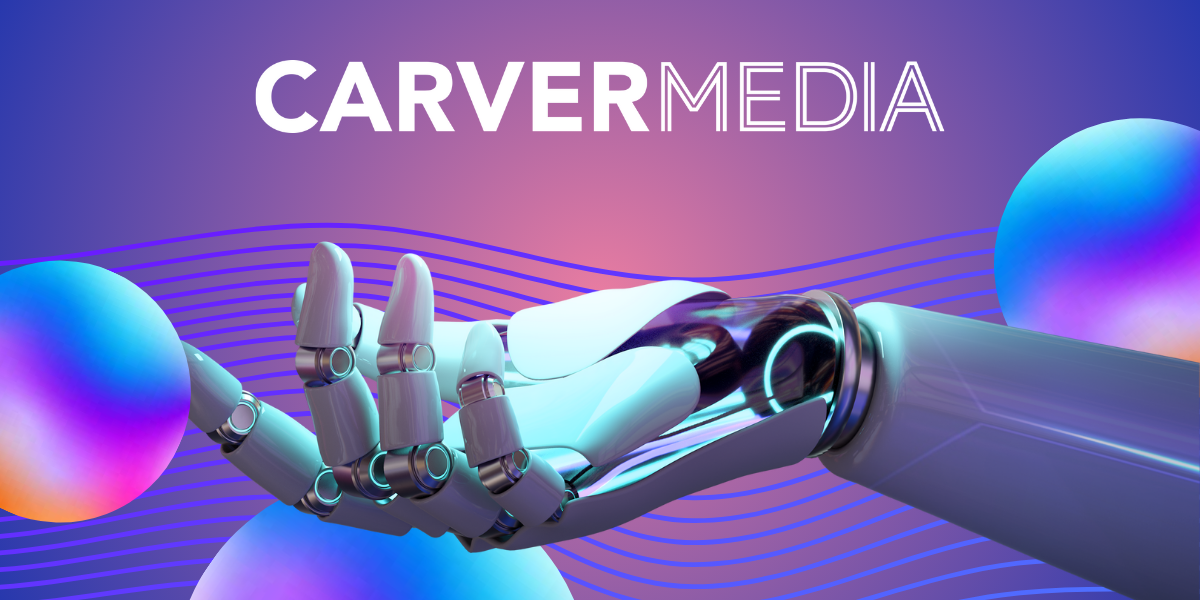Businesses, brands, and social media platforms have utilized Artificial Intelligence since its inception but as AI has evolved, it has since become the most powerful tool to shape the social media landscape.
AI has become integral in shaping social media by revolutionizing various aspects of user experience and content delivery. Social media users have always consumed AI content, whether it was knowingly or unknowingly with the most common uses for AI on social media platforms being used for social listening, data analytics, content creation, chatbots, algorithms, and targeted advertisements. Using AI for these purposes comes with long lists of pros and cons but the main reason so many companies use AI is to streamline business and customer service processes much more efficiently while also curating and personalizing content to keep users engaged and satisfied with their social media feeds.
AI On Social Media – The Pros and Cons As Told By AI Itself
I asked ChatGPT, an Artificial Intelligence Chatbot, to explain in a short paragraph how AI affects social media. Here is what the AI had to say:
“AI has profoundly influenced the landscape of social media, shaping the way individuals interact, share information, and consume content. With advanced algorithms, AI-powered platforms can analyze user behavior, preferences, and engagement patterns, enabling targeted content delivery and personalized recommendations. Chatbots, powered by AI, have become integral in providing instant customer support and enhancing user experience. Additionally, AI plays a pivotal role in content moderation, helping identify and filter out inappropriate or harmful content. However, the use of AI in social media has raised concerns about privacy, algorithmic biases, and the potential for creating echo chambers. As AI continues to evolve, its impact on social media is likely to deepen, influencing trends, shaping user experiences, and presenting both opportunities and challenges for individuals and society at large.”
As ChatGPT points out, AI has been adapted in industries worldwide for the range of benefits and streamlined processes it offers to not only the businesses, but the consumers as well. The integration of AI in social media offers unparalleled efficiency in content curation and personalization, ensuring users receive tailored and relevant information that aligns with their preferences and interests. AI algorithms can analyze vast amounts of data in real-time, enabling platforms to identify emerging trends, optimize user experiences, and enhance overall engagement. Moreover, AI-driven chatbots and customer service tools streamline communication processes, providing timely and accurate responses, thereby improving user satisfaction and fostering more meaningful interactions within the social media landscape.
While the integration of Artificial Intelligence has undoubtedly revolutionized the landscape of social media, it is imperative to scrutinize its potential drawbacks. The use of AI in social media raises concerns about privacy, as advanced algorithms may analyze user data to an extent that infringes on individual privacy rights. Additionally, the automated nature of AI content generation poses challenges in detecting and preventing the spread of misinformation, deep fakes, and other manipulative content. There is also a risk of algorithmic bias, where AI systems may inadvertently perpetuate existing social inequalities by amplifying certain perspectives or excluding others, thus hindering the diverse and inclusive nature of social media platforms.
AI Algorithms – How Long Do You Scroll?
The main use for AI on social media platforms is for creating and maintaining algorithms. As defined by Sprout Social, “A social media algorithm is a set of rules, signals and data that governs how content is filtered, ranked and recommended to users on the platform.” AI algorithms are beneficial because they can process vast amounts of data at incredible speeds, enabling quicker and more accurate decision-making across various industries. Additionally, AI algorithms contribute to efficiency and innovation by automating repetitive tasks, freeing up human resources for more creative and strategic endeavors. AI algorithms create personalized content recommendations, ensuring users receive tailored feeds based on their preferences, behaviors, and interactions. This not only saves users time by presenting them with relevant content but also fosters a sense of engagement and satisfaction as the platform adapts to their unique wants and needs. AI Algorithms identify patterns in user interactions and content consumption, prompting platforms to show content that is more likely to capture and maintain attention. This optimization can unintentionally encourage excessive use and contribute to addictive behavior; Furthermore, with AI algorithms continuously gathering information on users, this can potentially lead to the unintended sharing of sensitive information. In summary, while AI algorithms bring numerous benefits to social media platforms, there is a need for responsible implementation to mitigate potential negative impacts on user well-being and privacy.
Conscious Social Media Consumption
The best way to ensure businesses and social media users are responsibly using/consuming AI content is to be critical about their social media use. Social media users can be deceived by AI through the generation of realistic but fake content or through the AI misinterpreting or fabricating information. This makes it challenging to discern between genuine and manipulated information. Businesses using AI can then be seen as untrustworthy or uneducated by users for spreading misinformation or fake content created by AI programs. To combat this, both users and businesses should fact check images, videos, and other content that uses AI and be conscious about the content that they put out into social media channels. AI programs have also begun warning users about their potential to have false information. ChatGPT, an AI chatbot, offers this warning to users: “ChatGPT can make mistakes. Consider checking important information.” AI tools are extremely useful to both businesses and social media platforms, but only when used in ethical and meaningful ways.
In conclusion, fostering responsible and ethical use of AI in social media environments is crucial for maintaining trust and credibility. The potential for AI to generate realistic yet misleading content requires users and businesses to adopt a critical mindset. By actively engaging in fact-checking processes and being discerning consumers of AI-generated content, individuals can contribute to a more reliable and informed digital landscape.
